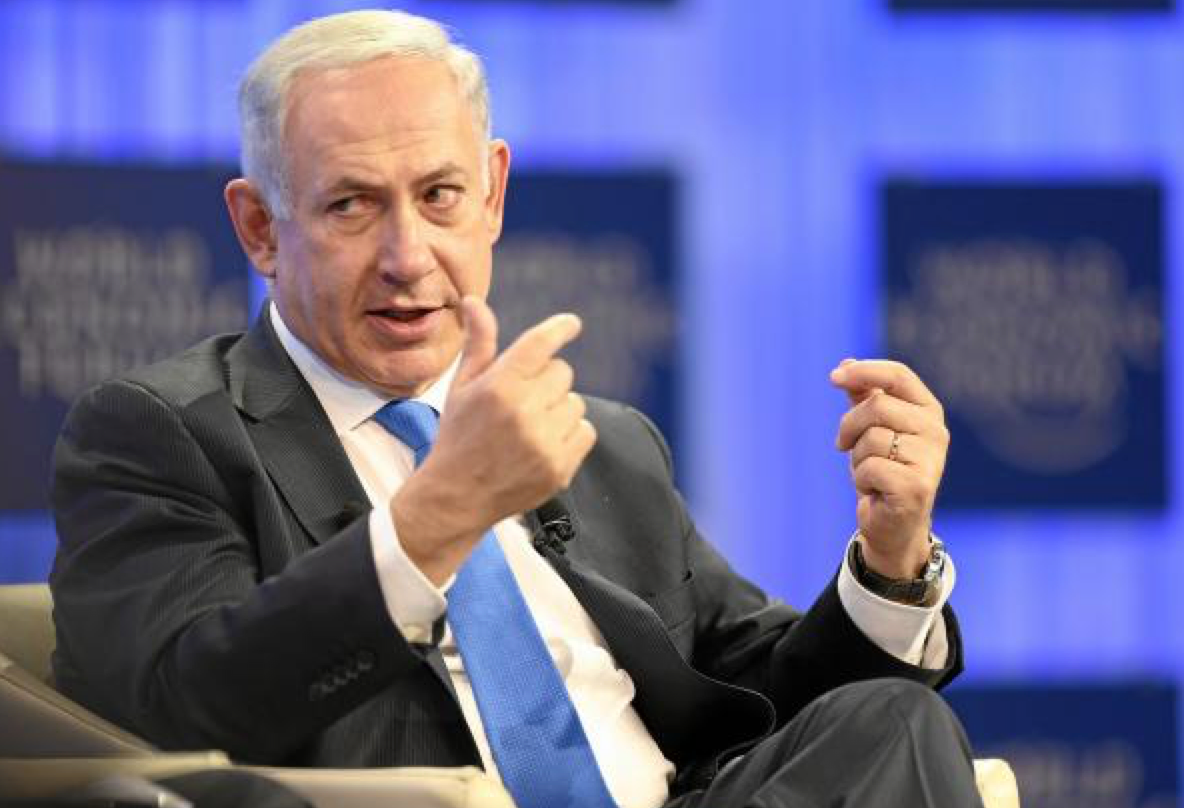
Bahdi, Reem, "Effective Responses to Vitriol and Violence" (Wednesday October 28, 2015) Embassy page 7.
Reproduced here with permission from Embassy:

Israeli Prime Minister Benjamin Netanyahu has claimed over several years that Hitler exterminated Jews because of encouragement he received from Jerusalem’s Grand Mufti.
The Mufti is a controversial figure even among Arabs and Palestinians. He is celebrated by some for leading revolts against the British in the 1930s. But many of his acts, including his association with fascists and Nazis during World War II, alienated many.
When Netanyahu repeated his account of the Mufti’s role in the Holocaust this week before the World Zionist Organization, the world took notice. Israeli historians rejected Netanyahu’s theory, noting that Hitler did not need the Mufti's encouragement. Holocaust survivors have demanded an apology, and Palestinian representatives point out that Netanyahu’s unsubstantiated Holocaust theory reveals the extent of his hatred for Palestinians. Germany has also criticized Netanyahu's re-telling of history.
Netanyahu’s text reinforces the need for Canada to reconsider the virtually unqualified support we have given Netanyahu's government. Canada has been emphatic in its praise of the Israeli government even in the face of acts such as home demolitions, expanded Israeli settlements and military attacks on civilian populations.
I have traveled to the West Bank regularly for 20 years on research assignments and have become increasingly dismayed with the level of vitriol and violence that has become common in the region. Canada’s support has allowed the Netanyahu government to remain impervious to human rights violations against Palestinians and created little incentive for Mr. Netanyahu to pursue peace. Instead, his policies have aimed at destroying Palestinian society and eliminating the possibility of two states, Israel and Palestine.
Our political alliance and apologies for the Netanyahu regime have put us out of step with world leaders who have thought long and hard about the ways in which peace can be achieved. Some world leaders believe that peace will not happen without boycotts and economic sanctions against Israel. Last year, the Israeli paper H’aartez published a plea from Desmond Tutu for peaceful action.
Encouraging Israelis to support boycott, divestment and sanctions of Israel, Tutu wrote: “There is no military solution. The solution is more likely to come from that nonviolent toolbox we developed in South Africa in the 1980s, to persuade the government of the necessity of altering its policies.” The boycott and sanctions movement that Tutu has advanced is growing in popularity and finds most of its support on university campuses around the world.
As a law professor I have watched students on Canadian campuses struggle to find ways to talk about and respond to these developments. The students may have made mistakes and they may not be unified in their strategies or philosophies about what needs to be done to secure peace.
Which movement or organization does not face such dilemmas? Nonetheless, Prime Minister Stephen Harper came down hard on Canadian students who do not agree with his approach to Israel and the Palestinians. For example, his government declared “zero tolerance” for the boycott, divestment and sanctions movement on Canadian campuses.
Prime Minister Netanyahu’s Holocaust theory has helped draw back the curtain on the Israeli government’s stance towards Palestinians. Efforts by Canadian political leaders to silence organized criticism of the Netanyahu government has been neither productive for peace nor good for Canadian democracy. Students on Canadian campus are increasingly anxious to discuss how to respond best to developments in Israel and Palestine.
Universities are supposed to be places for open thought and informed action. Perhaps in our post-Harper era, Canadian students will have the freedom to think about, discuss and eventually adopt a range of effective responses to violence and human rights abuses in the Middle East, including Israel, without undue interference from the Prime Minister’s office.
Professor Reem Bahdi teaches access to justice and torts at the Faculty of Law at the University of Windsor. Her current research focuses on the human rights dimensions of national security laws and policies in Canada, and access to justice in the Palestinian context.
WEF Photo
